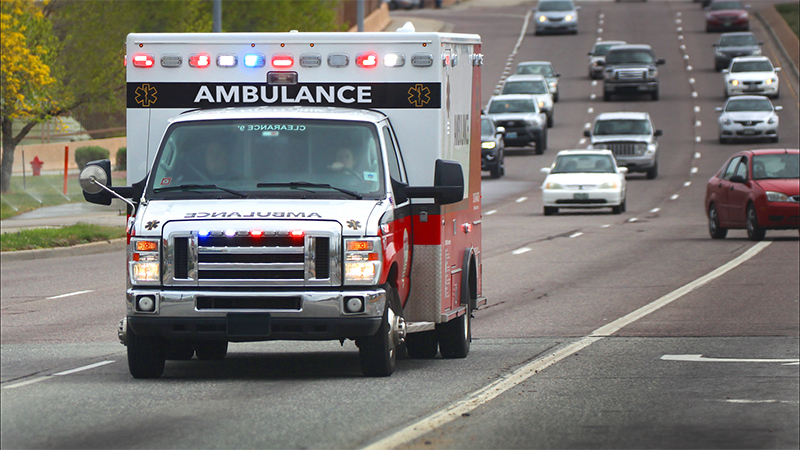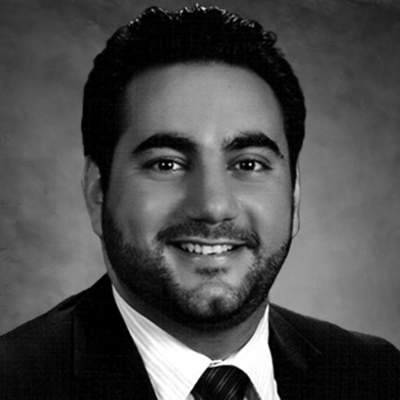Experienced Head-on Collision attorneys in just one call
America's Top rated Head-on Collision Attorney
Find out why we are one of the best head-on collision accident law firms in America
America's Top rated Head-on Collision Lawyer
Our head-on collision lawyers are dedicated to fighting for justice and maximum compensation for individuals like you. When you need someone to help you secure the financial compensation you deserve for medical expenses, lost wages, and pain and suffering, we will stand by your side.
Contact Goldberg & Loren at (888) 522-0335 today for a free consultation and take the first step towards getting the justice and compensation you deserve.
What is a Head-On Collision?
A head-on collision occurs when two vehicles traveling in opposite directions crash into each other. These types of accidents are often the most severe and deadly because of the force generated by the combined speed of the two vehicles.
Head-on collisions are a leading cause of fatalities and serious injuries on roadways, and they can occur on highways, rural roads, and urban streets.

Causes of Head-On Collisions
There are several potential causes of head-on collisions, including:
- Distracted driving: If a driver is distracted by their mobile phone, GPS, or other activities, they may inadvertently drift into oncoming traffic.
- Impaired driving: Alcohol, drugs, and medication can impair a driver's judgment and reaction times, leading to head-on collisions.
- Fatigue: A tired driver may drift across the center line or into oncoming traffic lanes, causing a head-on collision.
- Excessive speed: High speeds can make it difficult for drivers to react and correct their position, increasing the risk of crossing into oncoming traffic.
- Poor road conditions: Ice, rain, or other hazardous road conditions can cause a driver to lose control and veer into oncoming traffic.
- Poor visibility: Limited visibility due to fog, rain, or darkness can make it difficult for drivers to see oncoming vehicles, increasing the risk of a head-on collision.
- Wrong-way driving: Drivers who enter a highway or freeway in the wrong direction can cause head-on collisions.
- Mechanical failure: Brake failure, tire blowouts, or other mechanical issues can lead to loss of control and veering into oncoming traffic.
Head-on collisions accounted for just over 10% of all fatal motor vehicle accidents in 2020. This type of crash caused an estimated 3,631 deaths and thousands more injuries over the year, according to the Insurance Information Institute. [1]
Common Injuries From Head-On Collisions
Common injuries from a head-on accident can be severe due to the force and impact involved. These injuries can include:
- Head injuries: Head-on collision accidents can cause traumatic brain injuries, concussions, and other head injuries due to the impact with the steering wheel, dashboard, or windshield.
- Neck and spinal cord injuries: Whiplash, spinal cord injuries, and herniated discs can occur from the sudden jolt and impact of a head-on crash.
- Chest injuries: Impact on the steering wheel, airbag, or seat belt can cause chest contusions, rib fractures, and lung injuries.
- Abdominal injuries: Seat belt or steering wheel impact can cause internal organ injuries such as liver, spleen, or kidney damage.
- Facial injuries: Injuries to the face, including fractures, lacerations, and dental injuries, can occur from impact with the airbag, steering wheel, or other objects.
- Psychological trauma: The emotional impact of a head-on collision can lead to post-traumatic stress disorder (PTSD), anxiety, and depression.

What Should You Do After a Head-On Collison?
After a head-on collision, it’s crucial to take immediate steps to ensure safety and seek medical attention. Here’s what you should do after a head-on collision:
- Move to Safety: If the vehicles are still operable and it is safe to do so, move them to the side of the road to prevent further accidents and hazards. Turn on hazard lights.
- Contact Emergency Services: Call 911 to report the collision. Provide your location and the details of the accident, including any injuries and the number of vehicles involved.
- Seek Medical Attention: Even if you don't think you're seriously injured, it's important to seek medical attention. Some injuries may not be immediately apparent, and documentation of medical treatment will be important for insurance claims.
- Exchange Information: Exchange relevant information with the other driver(s) involved, including names, contact information, insurance details, and vehicle registration numbers.
- Document the Scene: Take photos of the accident scene, including damage to vehicles, road conditions, and any relevant details. This can be valuable for insurance claims and legal proceedings.
- Report the Accident: Contact your insurance company to report the collision and begin the claims process.
- Follow-up: Follow up with medical professionals for any ongoing treatment or rehabilitation needed.
- Legal Advice: If there are disputes or complexities involved in the accident, consider consulting with our legal professionals to understand your rights and responsibilities.
Compensation From a Head-On Collision
Here are some common types of compensation you may be entitled to:
- Medical Expenses: You can seek compensation for past, present, and future medical expenses related to your injuries, including hospital bills, surgery costs, medication, rehabilitation, physical therapy, and medical equipment.
- Lost Income: If your injuries caused you to miss work or resulted in a decreased earning capacity, you can seek compensation for the wages you lost and any future income you might lose due to the injuries.
- Pain and Suffering: Compensation for physical pain, emotional distress, and psychological trauma resulting from the accident and subsequent injuries may be available.
- Property Damage: This includes the cost of repairing or replacing your vehicle or any other damaged property.
- Loss of Consortium: If your injuries have affected your relationship with your spouse, they may be entitled to compensation for loss of companionship and support.
- Punitive Damages: In cases of extreme negligence or intentional misconduct by the at-fault party, punitive damages may be awarded to punish the wrongdoer and deter similar behavior in the future.
- Funeral Expenses: In the unfortunate event of a fatality, compensation may be available for funeral and burial expenses.

Head-on Collision Lawyer
With years of experience and a track record of success, our team of dedicated personal injury lawyers is committed to helping you seek justice and fair compensation for your injuries.
Our dedicated personal injury attorneys understand the challenges that you are facing and are dedicated to providing compassionate and effective legal representation.
Contact our car accident attorneys today for personalized legal guidance during a free consultation.
FAQs
Modern vehicles are equipped with advanced safety technologies such as airbags, seat belts, anti-lock braking systems, electronic stability control, and crash avoidance systems. These features are designed to mitigate the impact of a collision, absorb energy, and protect occupants by preventing or reducing the severity of injuries. Airbags can deploy upon impact to cushion the occupants, seat belts restrain and protect the body, and advanced driver assistance systems can help avoid collisions altogether. When properly designed and utilized, these safety features play a crucial role in enhancing occupant protection and minimizing the risk of severe injury in head-on collisions.
In cases of head-on collisions, legal implications may include insurance claims and civil lawsuits to seek compensation for injuries and property damage. Determining fault is a crucial aspect, as it may involve proving negligence, intoxication, or other factors contributing to the collision. Compliance with state traffic laws, regulations, and criminal charges in cases of extreme negligence or intoxication may also be addressed.
The Statute of Limitations for filing a head-on collision claim varies by jurisdiction, but it generally ranges from one to three years from the date of the accident. Failing to file a claim within the stipulated time frame may result in the forfeiture of your right to seek compensation for injuries and damages sustained in the head-on collision.
Source:
[1] Bieber, C. (2023, January 24). Head-On Collision Causes, Injuries & Fault. Forbes Advisor. https://www.forbes.com/advisor/legal/auto-accident/head-on-collision/

We fight hard for our clients who have been injured in a head-on collision. Our personal injury lawyers fight for maximum compensation.
George Goldberg
Senior Partner
Have Questions About Your Case? Call Us Today:












